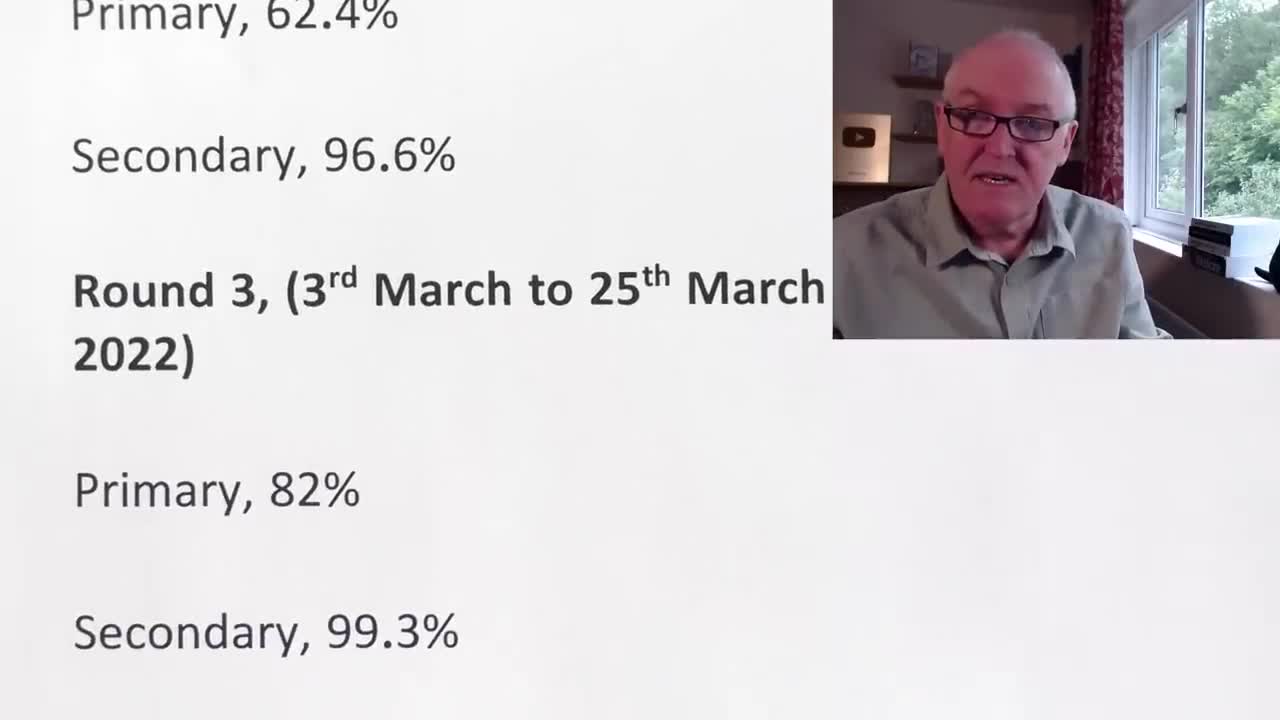Premium Only Content

DOCTOR JOHN CAMPBELL Nearly all youth in England had COVID-19 antibodies by March 2022.
Novel Coronavirus SARS-CoV-2
Colorized scanning electron micrograph of a cell (red), isolated from a patient sample, that is heavily infected with SARS-COV-2 virus particles (yellow). NIAID Integrated Research Facility
As the global pandemic caused by the coronavirus SARS-CoV-2 continues, researchers are working at unprecedented speed to produce new treatments and vaccines. Much work has focused on studying antibodies from the blood of people who have recovered from COVID-19, the disease caused by SARS-CoV-2.
Antibodies are molecules that are produced by the immune system to fight infection. Some research teams are testing whether antibodies against SARS-CoV-2 could be isolated and given as a treatment to others who are infected. Others are studying the structure and function of different antibodies to help guide the development of vaccines.
SARS-CoV-2 particles have proteins called spikes protruding from their surfaces. These spikes latch onto human cells, then undergo a structural change that allows the viral membrane to fuse with the cell membrane. The viral genes then enter the host cell to be copied and produce more viruses.
Several potential vaccines now under development are designed to trigger the human body to produce antibodies to the SARS-CoV-2 spike protein. Antibodies that recognize and bind to the spike protein will hopefully block the virus from infecting human cells.
To better understand antibodies against the spike protein that are naturally produced after an infection, a team led by Drs. Davide Robbiani and Michel Nussenzweig at the Rockefeller University studied 149 people who had recovered from COVID-19 and volunteered to donate their blood plasma. The participants had started experiencing symptoms of the virus an average of 39 days before sample collection.
-
 1:08:32
1:08:32
The Charlie Kirk Show
8 hours agoTHOUGHTCRIME Ep. 72 — Self-Sterilizing Libs? 2032 Armageddon? Worst Super Bowl Ever?
117K46 -
 1:14:02
1:14:02
Donald Trump Jr.
14 hours agoThe USAID Truman Show, Interview with Mike Benz | Triggered Ep.214
157K222 -
 1:37:34
1:37:34
Precision Rifle Network
1 day agoS4E4 Guns & Grub - You Can't Handle The Truth!
28.4K -
 56:14
56:14
Flyover Conservatives
1 day agoSick, Tired, & Foggy? The TRUTH About What’s Living in Your Gut! - Dr. Jason Dean | FOC Show
104K6 -
 34:24
34:24
Kimberly Guilfoyle
14 hours agoFaith, Fairness, and a Better Future: Live w/ Joy Pullmann & Elizabeth Mitchell | Ep.194
177K32 -
 1:12:20
1:12:20
Josh Pate's College Football Show
12 hours ago $7.69 earnedBig CFB Changes Coming | DeBoer Fixing Alabama | Signing Day Reaction | OhioSt vs Michigan Shift
76.6K2 -
 59:39
59:39
The StoneZONE with Roger Stone
9 hours agoEXCLUSIVE: James O'Keefe Talks to Roger Stone About Dropped Charges Against Him | The StoneZONE
62.9K5 -
 1:48:10
1:48:10
megimu32
9 hours agoON THE SUBJECT: Comedian LOSES It At Heckler!
39.8K9 -
 1:17:13
1:17:13
Redacted News
13 hours agoTRUMP IS BURNING IT ALL DOWN AND DEMOCRATS WANT HIM IMPEACHED AGAIN, USAID ROT GOES DEEP | Redacted
191K397 -
 52:23
52:23
Candace Show Podcast
13 hours agoUPDATE! Taylor Swift Goes Full Dragon Against Blake Lively | Candace Ep 144
167K280